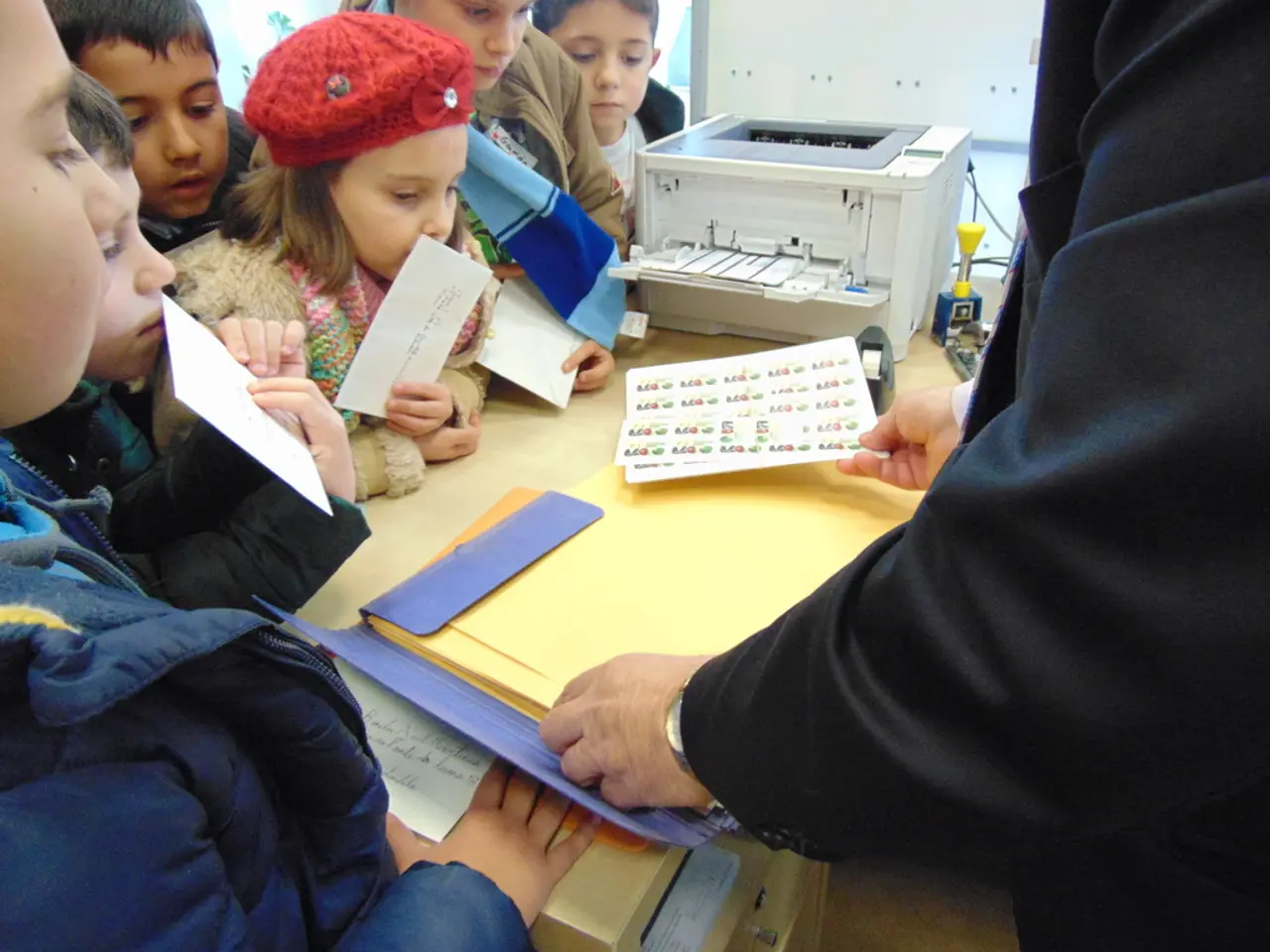Weekly $50 stipend over 40 weeks: Cash without conditions transformed lives of adolescents
In a groundbreaking study, The $50 Study, high school students in economically disadvantaged areas received unconditional cash transfers of $50 per week for a period of 40 weeks. The study, which began at Rooted School in New Orleans, aimed to investigate the impact of such transfers on a teen's financial capability and perception of themselves.
The results were promising. Students who received the cash payments attended school slightly more often than those who didn't, averaging 1.23 more days per semester than their counterparts in the control group. This trend was consistent across various reports.
Financially, the extra cash helped students acquire stronger long-term planning skills and familiarity with financial products like savings accounts. On average, students ended the study with $300 saved away, representing a 15% savings rate—about triple the national average savings rate of American adults.
The cash transfers, however, did not lead to measurable improvements in GPA or reading scores. Academic performance remained unaffected.
The study also revealed that students felt a greater sense of independence, control, and self-efficacy. They reported that the cash symbolized trust from adults. Examples from individual students show varied use of the money, paying for braces, dance classes, eating out, and saving towards future goals, illustrating diversified financial decision-making among teens.
Talia Livneh, senior director of programs for the Rooted School Foundation, said the politics may need to catch up to the research. "The data shows that providing no-strings-attached cash to teenagers can positively influence attendance and financial habits without directly improving academic achievement," she said. "This supports the view that early financial empowerment helps build lifelong financial health and autonomy."
The study has since grown to include eight other high schools in New Orleans, as well as Rooted's sister campus in Indianapolis. With state lawmakers failing to pass legislation that threatened to ban local governments from adopting guaranteed income programs, the Rooted school network is planning to take the study to neighboring Texas.
Despite the positive findings, many Americans remain skeptical of a federal program that gives unconditional financial support to people. Aditi Vasan, a pediatrician and researcher, said skeptics often worry about recipients using public dollars for drug use or other illicit behavior, but the data does not support that.
In conclusion, the $50 study suggests that a little bit of spending cash can make a difference in young people's lives, improving their attendance and financial skills, and fostering a sense of independence and control. The study's findings support the idea that early financial empowerment can contribute to lifelong financial health and autonomy, even if it does not immediately affect academic metrics.
- The findings of The $50 Study indicate that unconditional cash transfers may positively influence education and self-development, as students who received the payments showed improved attendance and financial skills, fostering a sense of independence and control.
- Surprisingly, the cash transfers did not lead to immediate improvements in academic metrics such as GPA or reading scores, suggesting that while finance and financial literacy may be positively affected, educational achievement might not be directly impacted.
- Despite skepticism surrounding federal programs that provide unconditional financial support, the data from The $50 Study supports the notion that early financial empowerment can contribute to lifelong financial health and autonomy, even without immediate academic impacts, indicating a potential shift in focus for education-and-self-development programs.




